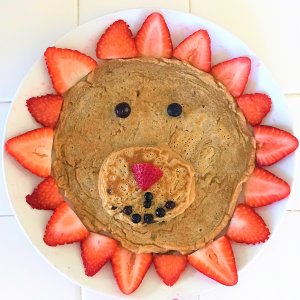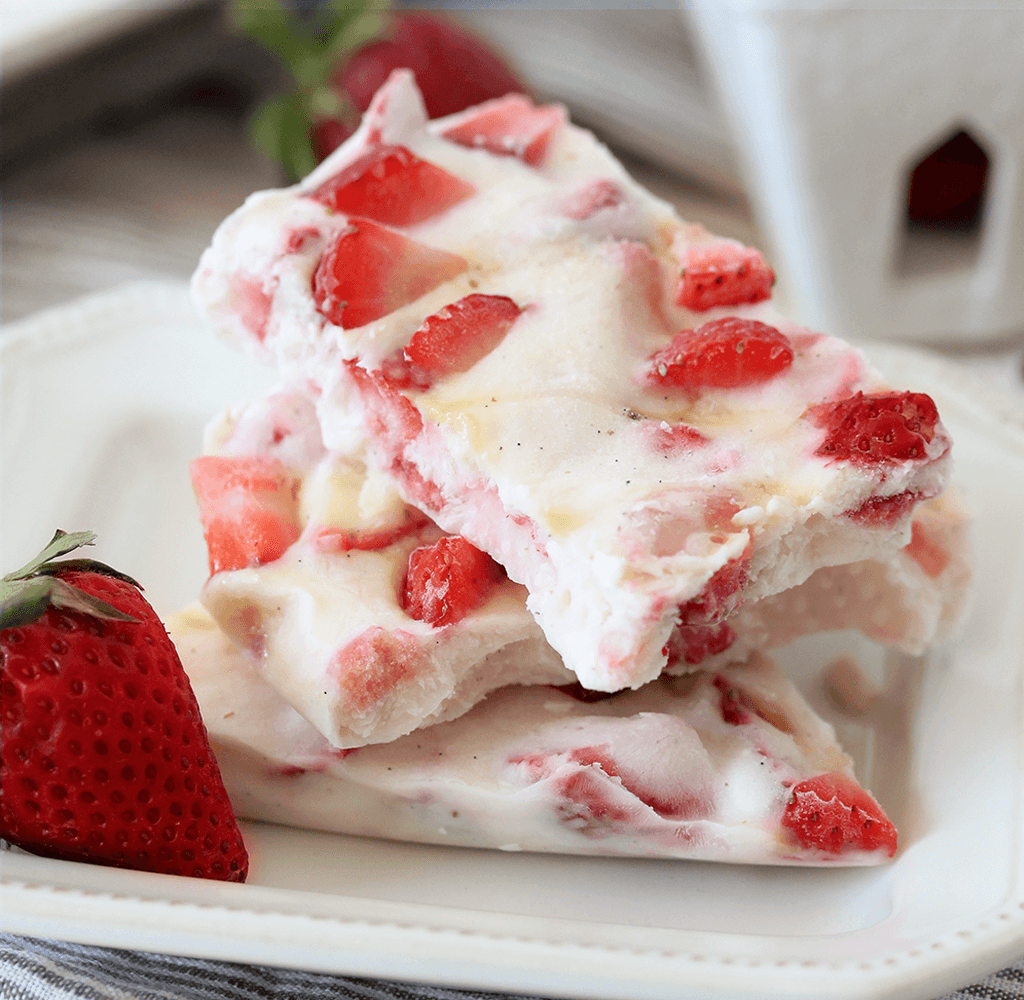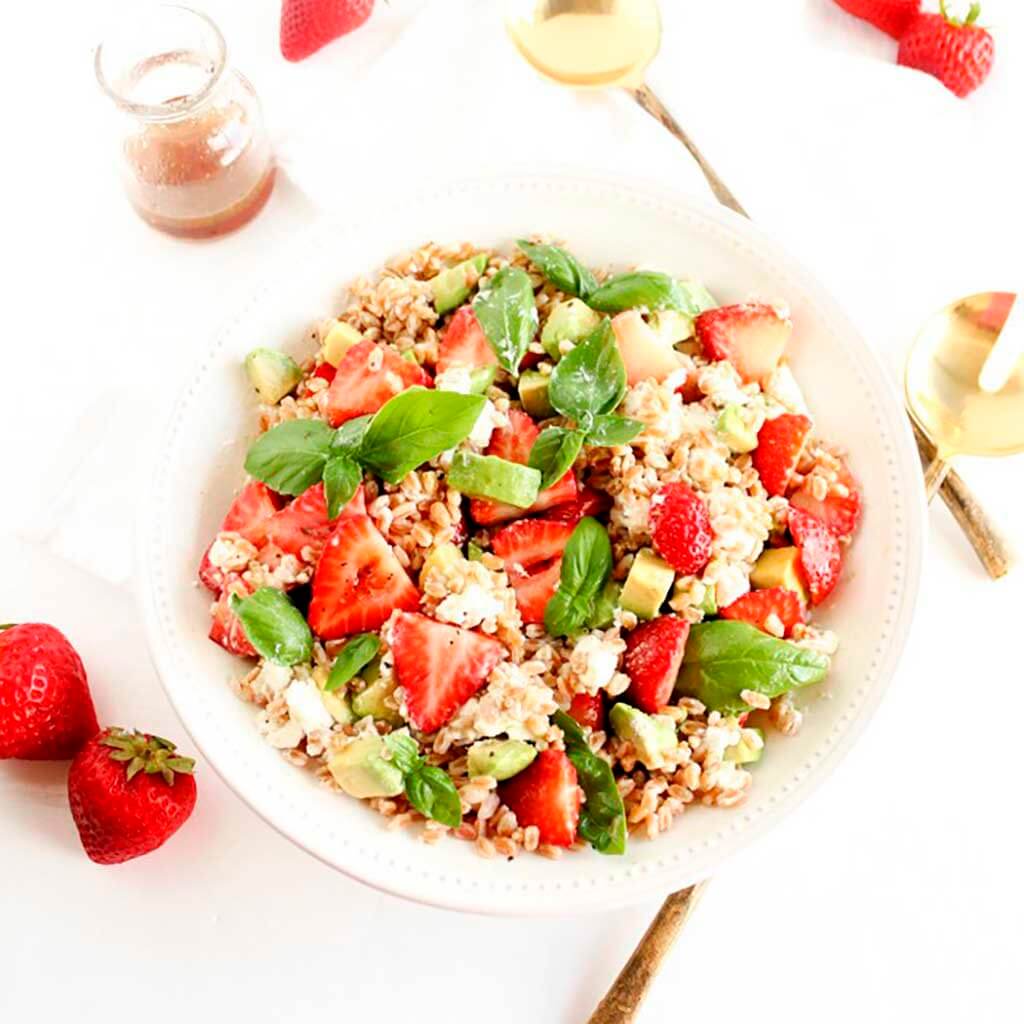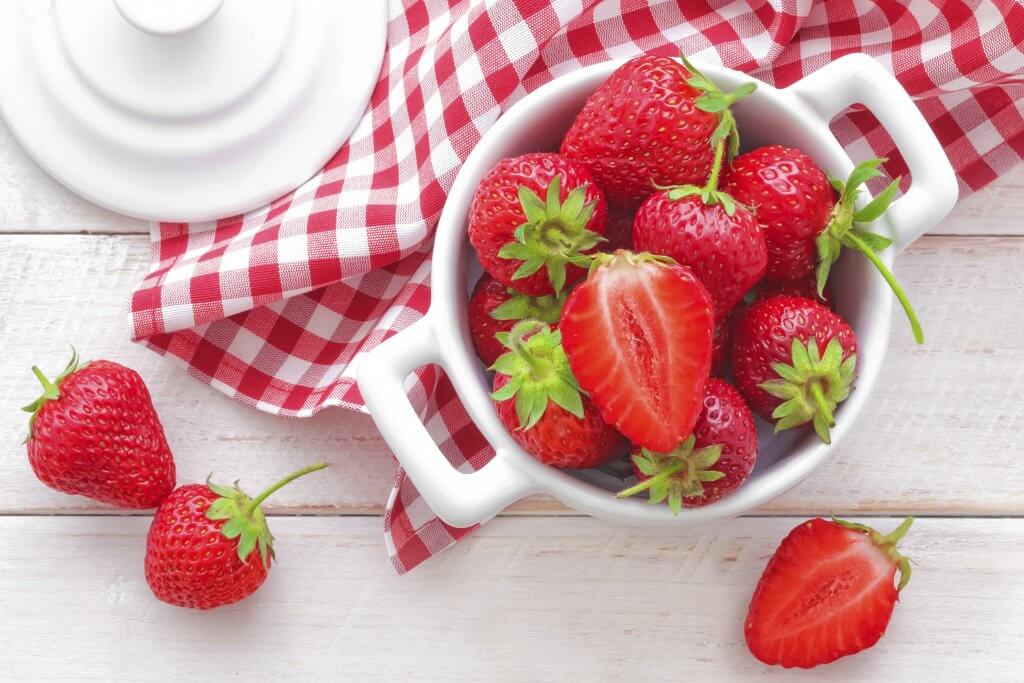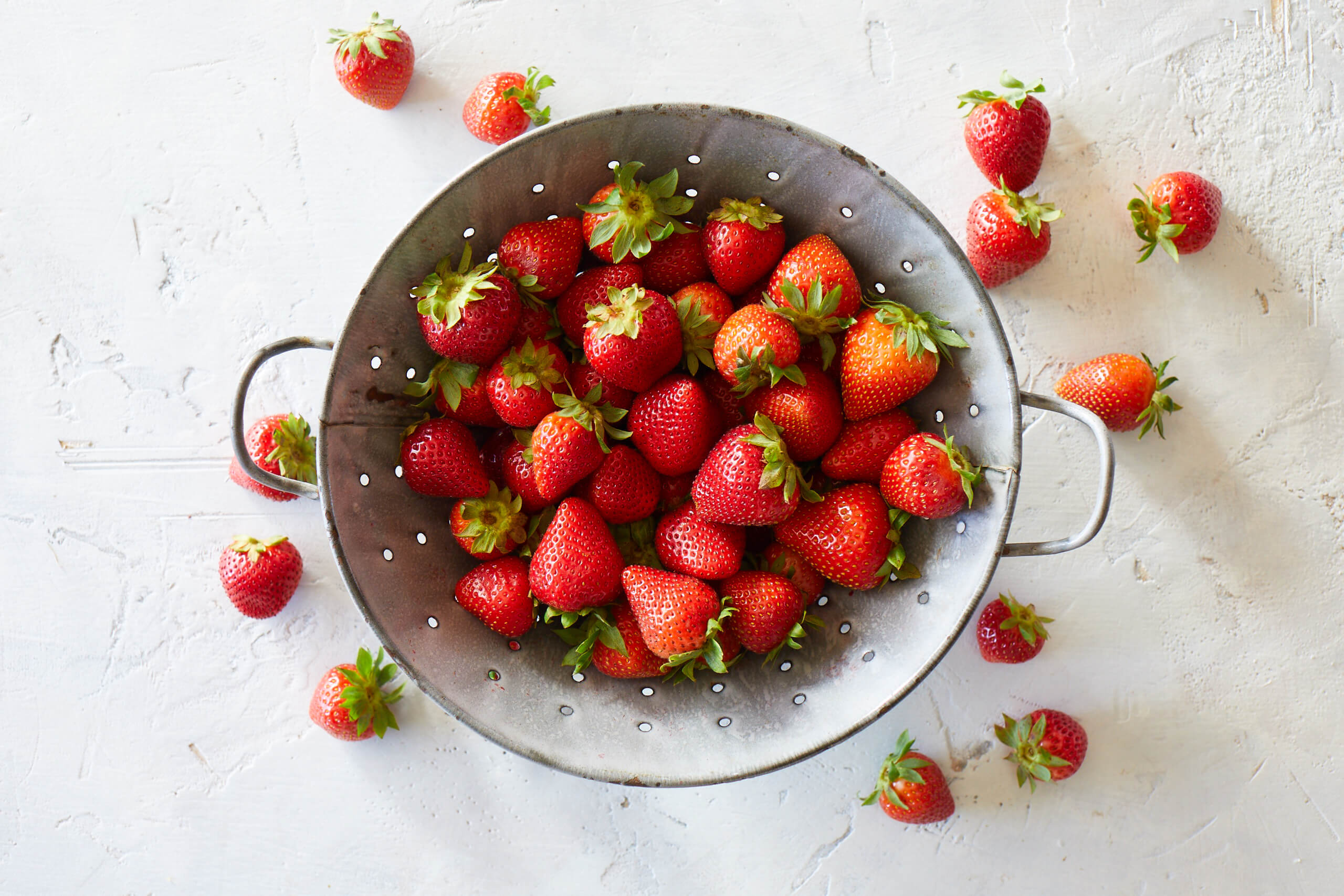
Incorporating strawberries into your weekly diet is an easy habit to start for National Nutrition Month.
March is National Nutrition Month. March is also known to come in like a lion and go out like a lamb. Nutrition resembles the last winter month as it warms up to give way to new life, anticipation, and confidence.
Much like the lion at the beginning of March, adding fruits and vegetables into your life can seem intimidating. Registered Dietitian Nutritionist (RDN) Day is celebrated March 11 because RDNs help nurture healthful eating habits via small steps. After a month of small lifestyle changes, fears melt away, self-esteem increases, and achieving goals has already begun.
Start Small with Strawberries
In our latest blog post Colleen Wysocki, RDN highlights simple habits you can start in March. Below is one nutrition habit for each week of of the month.
Each habit incorporates strawberries due to their role in potentially preventing colds, heart disease, cancer, Alzheimer’s dementia, and Type 2 diabetes. The most prevalent nutrients in strawberries include:
- fiber
- potassium
- folate
- vitamin C
Beyond these nutrients, the antioxidants and polyphenols help fight inflammation and disease. Strawberries have the most dense concentration of the antioxidant fisetin in the human diet. Several studies indicate that fisetin is a promising novel antioxidant in the prevention of cancer, neurodegenerative diseases, and ischemic stroke.[i]
National Nutrition Month Challenge
We encourage our strawberry fans to accept this month-long nutrition challenge and tame the fears, the intimidation, and the metaphorical “lion” that comes with change. You’ll probably find that each week offers a relatively easy habit to start; the challenge may be in continuing the habits throughout the year. Give it a try!
March 1-7: It’s also National Frozen Food Month- a perfect pairing for National Nutrition Month!
Week 1 Habit: Use frozen fruits or vegetables in a least one meal or snack per day this week.
Buying frozen fruits and vegetables at the grocery store can save money, extend shelf-life, and increase convenience. Did you know that frozen fruits and vegetables are just as nutritious as fresh? Here’s a simple recipe using frozen strawberries: Strawberry Yogurt Bark
March 8-14: March 10 is National Pack Your Lunch Day.
Week 2 Habit: Bring your lunch to work all week so you can take back control of your nutrition. Forget high-sodium deli sandwiches! Try these potassium-rich lunch ideas:
- Strawberry Summer Rolls
- Peanut Butter & Strawberry Sushi
- Simple Strawberry Parfait
- Strawberry Basil Quinoa Salad
- Strawberry Avocado Farro Salad
March 15-22: It’s Brain Awareness Week!
Week 3 Habit: Eat strawberries at least 3 times this week for brain health.
Research shows a link between seniors who eat the most strawberries having a 34% lower risk of Alzheimer’s dementia.[ii] Review the research here.

Scientists found a pattern in seniors who eat the most strawberries also have the lowest risk for Alzheimer’s dementia.
March 23-29: March 24 is National Diabetes Association Alert Day.
Week 4 Habit: Eat a serving of 8 strawberries a few days this week to help control your blood sugars.
Strawberries are low in sugar and may help improve insulin sensitivity, making them a great choice for those following a diabetes meal plan.
March 30-31: You’ve reached the end of the challenge!
Week 5 Habit: Reward yourself with a naturally-sweetened dessert such as:
Strawberry Crepes with Dulce de Leche & Orange Liqueur
Nutrition is also about enjoying food. Whether it’s putting a nutritious spin on a dessert or enjoying your favorite snack in moderation, every food can fit into your nutrition plan.
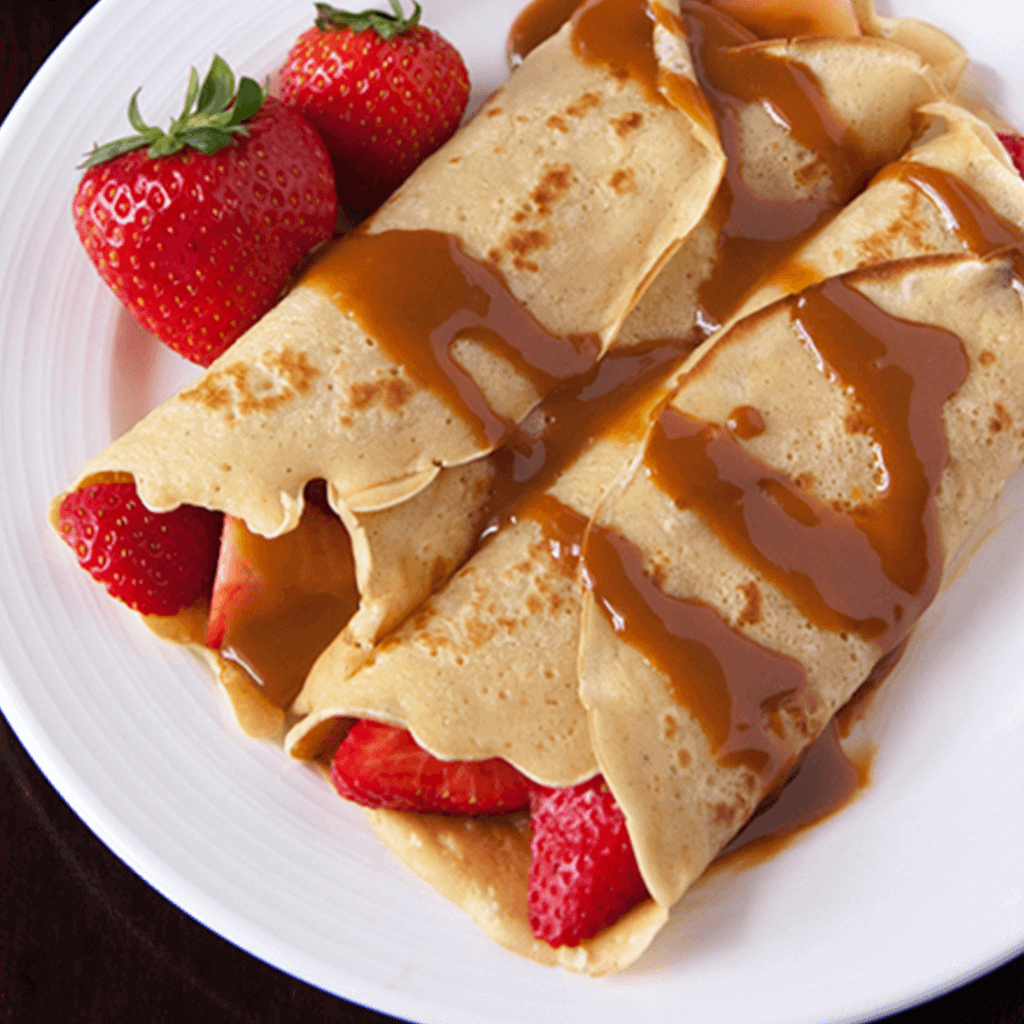
Strawberry Crepes with Dulce de Leche and Orange Liqueur are a low-sugar dessert to enjoy as a treat.
Let us know how you did with the nutrition challenge on Facebook, Instagram, or email. Don’t forget to try even more strawberry recipes as you take on the challenge of healthier eating. Happy National Nutrition Month!
References
[i] Khan, N., Syed, D. N., Ahmad, N., & Mukhtar, H. (2013). Fisetin: a dietary antioxidant for health promotion. Antioxidants & redox signaling, 19(2), 151–162. doi:10.1089/ars.2012.4901
[ii] Agarwal, P.; Holland, T.M.; Wang, Y.; Bennett, D.A.; Morris, M.C. (2019). Association of strawberries and anthocyanidin intake with Alzheimer’s dementia risk. Nutrients, 11, 3060. https://doi.org/10.3390/nu11123060

